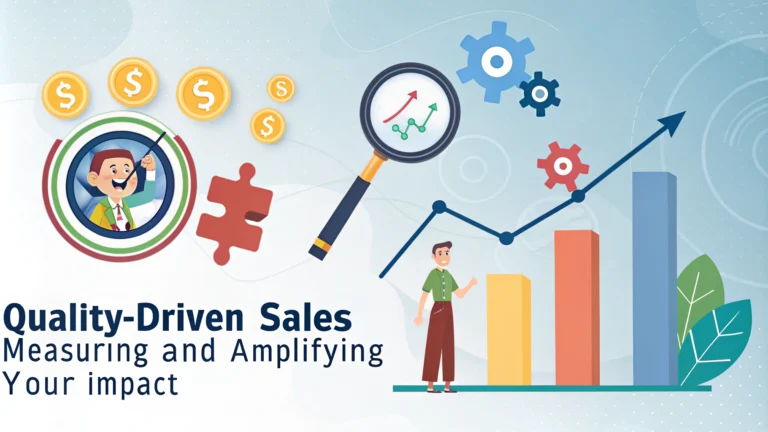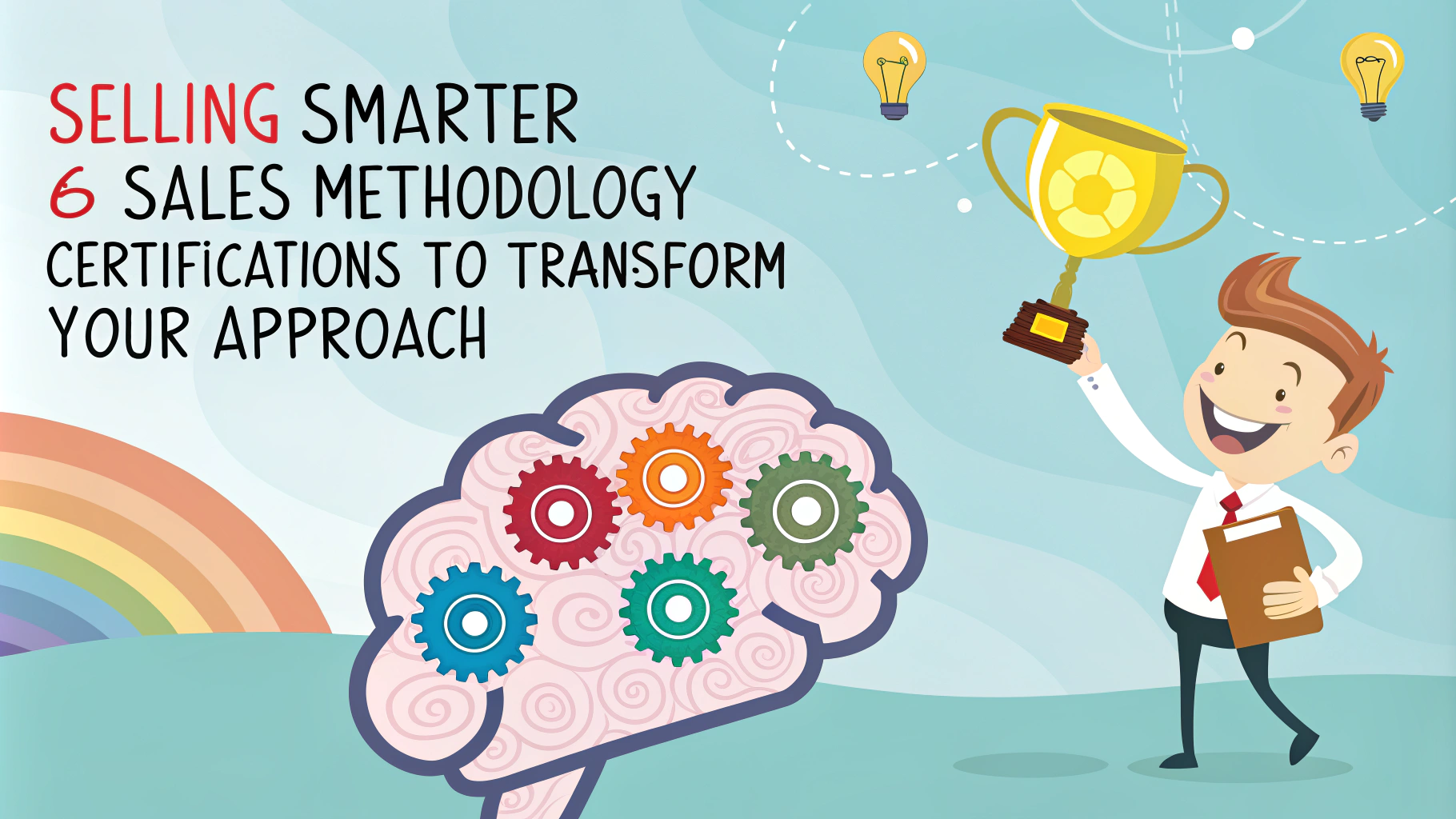Sales quality is a critical factor in determining the success of any business.
Understanding and improving sales quality can lead to increased revenue, customer satisfaction, and long-term growth.
This article explores the concept of sales quality, its importance, and practical strategies for measurement and enhancement.
Defining Sales Quality
Sales quality refers to the effectiveness and efficiency of the sales process in meeting customer needs and achieving business objectives.
It encompasses various aspects of the sales cycle, from initial customer interaction to post-sale follow-up.
High-quality sales are characterized by strong customer relationships, accurate need assessments, and solutions that provide genuine value.
Key components of sales quality include:
- Customer satisfaction
- Revenue generation
- Sales process adherence
- Product knowledge
- Ethical conduct
The Importance of Measuring Sales Quality
Measuring sales quality provides valuable insights into the effectiveness of your sales team and strategies.
It helps identify areas for improvement and allows for data-driven decision-making in sales management.
Regular quality assessments can lead to:
- Increased customer retention
- Higher conversion rates
- Improved sales team performance
- More accurate sales forecasting
By focusing on quality metrics, businesses can shift from a quantity-driven approach to a more sustainable, value-oriented sales model.
Key Metrics for Assessing Sales Quality
To effectively measure sales quality, consider tracking the following metrics:
- Customer Satisfaction Score (CSAT): Measures overall customer contentment with the sales experience.
- Net Promoter Score (NPS): Indicates customer loyalty and likelihood to recommend your product or service.
- Sales Cycle Length: Reflects the efficiency of your sales process.
- Win Rate: Shows the percentage of opportunities that result in closed deals.
- Average Deal Size: Indicates the value of typical sales transactions.
- Customer Lifetime Value (CLV): Measures the total worth of a customer over the entire relationship.
Regularly tracking these metrics provides a comprehensive view of your sales quality performance.
Strategies for Improving Sales Quality
Enhancing sales quality requires a multi-faceted approach. Consider implementing these strategies:
1. Invest in Continuous Training
Provide ongoing education to keep your sales team updated on product knowledge, industry trends, and effective selling techniques.
2. Implement a Robust CRM System
Utilize customer relationship management tools to track interactions, manage leads, and analyze sales data effectively.
3. Develop a Standardized Sales Process
Create a consistent, repeatable sales methodology that aligns with your company’s goals and customer needs.
4. Focus on Solution Selling
Train your team to identify and address customer pain points rather than simply pushing products.
5. Encourage Customer Feedback
Regularly seek and act upon customer input to improve your sales approach and offerings.
Overcoming Common Challenges in Sales Quality Improvement
Improving sales quality often faces several obstacles. Here are some common challenges and ways to address them:
| Challenge | Solution |
|---|---|
| Resistance to change | Communicate benefits clearly and involve team in process |
| Lack of consistent measurement | Implement regular quality audits and reporting |
| Insufficient data analysis | Invest in analytics tools and training |
| Short-term focus | Align quality metrics with long-term business goals |
Addressing these challenges requires commitment from leadership and a culture that values continuous improvement.
Conclusion
Measuring and improving sales quality is essential for sustainable business growth and customer satisfaction.
By implementing robust metrics, focusing on continuous improvement, and addressing common challenges, organizations can significantly enhance their sales performance.
Remember that improving sales quality is an ongoing process that requires dedication, adaptability, and a customer-centric approach.
FAQs
- What are the key performance indicators (KPIs) for measuring sales quality?
The primary KPIs include customer satisfaction scores (CSAT), customer lifetime value (CLV), customer retention rates, net promoter score (NPS), product return rates, customer complaint frequency, and average deal size. - How can sales teams balance quality metrics with quantity-based targets?
Sales teams can balance quality and quantity by implementing a weighted scoring system that considers both revenue targets and quality metrics, ensuring customer satisfaction and long-term relationship building are valued alongside traditional sales numbers. - What role does customer feedback play in quality-driven sales?
Customer feedback serves as a crucial metric for measuring sales quality, providing insights into customer satisfaction, identifying areas for improvement, and helping refine sales processes and product offerings. - How can organizations implement quality control in their sales processes?
Organizations can implement quality control through standardized sales procedures, regular sales call monitoring, customer interaction reviews, comprehensive sales training programs, and consistent feedback loops between sales and customer service teams. - What impact does quality-driven sales have on customer retention?
Quality-driven sales typically lead to higher customer retention rates by focusing on customer needs, providing appropriate solutions, setting realistic expectations, and building strong, trust-based relationships. - How do you measure the ROI of quality-driven sales initiatives?
ROI can be measured by tracking changes in customer lifetime value, reduction in customer churn, increase in repeat business, referral rates, and the ratio of customer acquisition cost to customer lifetime value. - What technologies support quality-driven sales measurement?
CRM systems, sales analytics platforms, customer feedback software, call recording and analysis tools, and performance tracking dashboards are essential technologies for measuring and improving sales quality. - How does quality-driven sales affect long-term business growth?
Quality-driven sales contribute to sustainable business growth through increased customer loyalty, positive word-of-mouth marketing, stronger brand reputation, and reduced customer acquisition costs. - What training is required for quality-driven sales teams?
Training should focus on product knowledge, consultative selling techniques, active listening skills, needs assessment, problem-solving, relationship building, and understanding quality metrics and their importance. - How can sales managers effectively coach for quality improvement?
Sales managers can coach through regular one-on-one meetings, sales call reviews, role-playing exercises, metric-based performance reviews, and providing constructive feedback on both quantitative and qualitative aspects of sales performance.





